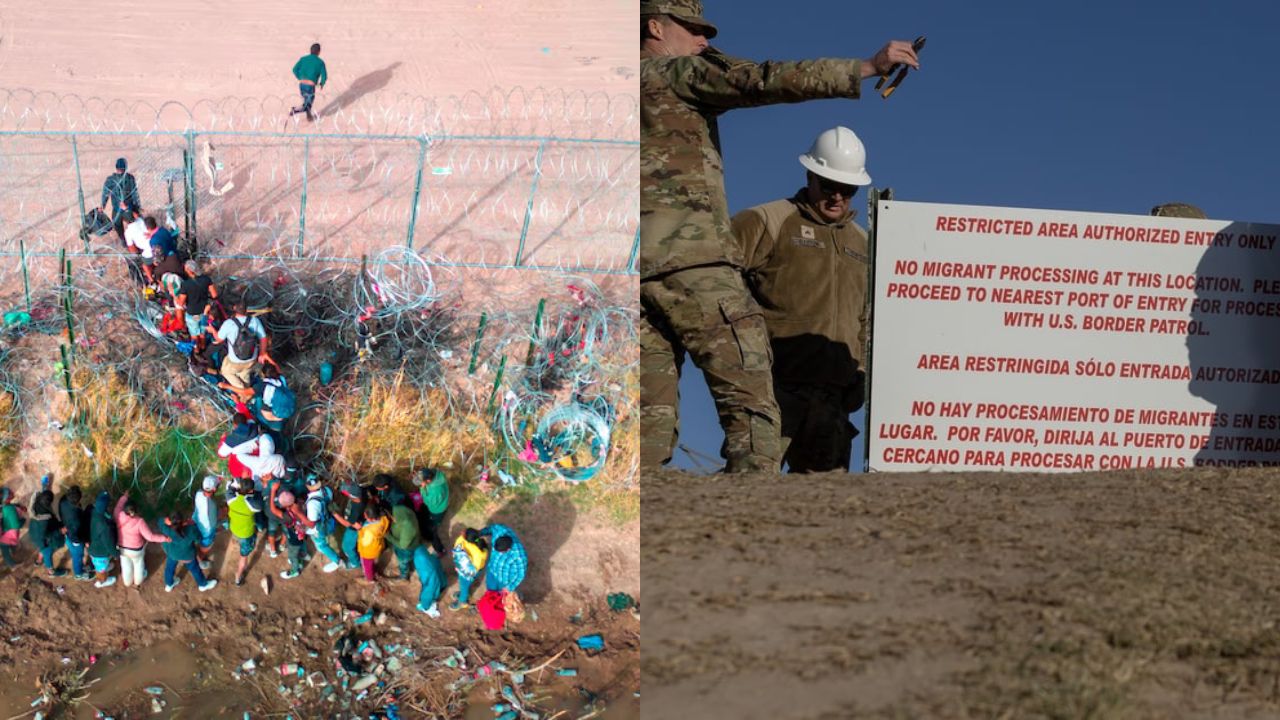Late Tuesday night, a federal appeals court reinstated the hold on Texas’ contentious immigration law, following the Supreme Court’s earlier decision to permit the state to enforce the measure.
A three-judge panel at the 5th US Circuit Court of Appeals voted 2-1 to overturn a previous ruling, which temporarily allowed the law—granting state officials the authority to detain individuals suspected of entering the country illegally—to take effect.
The same panel of judges is scheduled to deliberate on Wednesday morning regarding Texas’ plea to reinstate the law, known as Senate Bill 4, while the state appeals a federal judge’s injunction against it.
Circuit Judge Andrew Oldham, one of the panel members, publicly dissented, expressing his preference to keep the law in effect until further oral arguments are heard on the matter.
He stated, “I would leave that stay in place pending tomorrow’s oral argument on the question.”
Regardless of the 5th Circuit’s decision following Wednesday’s proceedings, the appeals court will proceed with arguments next month regarding the constitutionality of the law and whether it should be permanently blocked.
The legal maneuvers surrounding SB 4 reached the Supreme Court, which earlier on Tuesday permitted the law to take effect by rejecting emergency appeals from the Biden administration and other parties. This ruling marked a significant, albeit temporary, victory for Texas in its ongoing dispute with the Biden administration over immigration policy.
Shortly afterward, the appeals court scheduled oral arguments to consider whether to halt the law while legal challenges are underway. The court slated Wednesday’s virtual oral arguments for 11 a.m. ET.
SB 4, enacted by Republican Governor Greg Abbott in December, criminalizes illegal entry into Texas and empowers state judges to order the deportation of immigrants. Immigration enforcement typically falls under the jurisdiction of the federal government.
The law immediately sparked concerns among immigration advocates regarding heightened racial profiling, as well as increased detentions and attempted deportations by state authorities in Texas, where Latinos make up 40% of the population.
A federal judge in Austin had previously halted the implementation of the law, ruling last month that it “could pave the way for each state to enact its own immigration laws.” The Supreme Court’s three liberal justices also expressed reservations about the law as they dissented from the high court’s decision to allow it to be enforced temporarily on Tuesday.
Justice Sonia Sotomayor, in her dissent joined by fellow liberal Justice Ketanji Brown Jackson, voiced concerns that the order “encourages further confusion and crisis in immigration enforcement.”
Sotomayor further stated in her dissent that the law “disrupts the long-standing federal-state balance of power, which has granted exclusive authority to the National Government over the entry and removal of noncitizens.” The case could soon return to the Supreme Court for further consideration.

